This article was co-authored by Andrea Rudominer, MD, MPH and by wikiHow staff writer, Hannah Madden. Dr. Andrea Rudominer is a board certified Pediatrician and Integrative Medicine Doctor based in the San Francisco Bay Area. Dr. Rudominer has over 15 years of medical care experience and specializes in preventive health care, obesity, adolescent care, ADHD, and culturally competent care. Dr. Rudominer received her MD from the University of California, Davis, and completed a residency at the Lucile Packard Children's Hospital at Stanford University. Dr. Rudominer also has an MPH in Maternal Child Health from the University of California, Berkeley. She is a Member of the American Board of Pediatrics, a Fellow of the American Academy of Pediatrics, a Member and Delegate of the California Medical Association, and a Member of the Santa Clara County Medical Association.
There are 10 references cited in this article, which can be found at the bottom of the page.
This article has been viewed 8,827 times.
Bug bites are annoying—the itching, swelling, and discomfort that comes with them can be a major irritation. But when a bug bite gets infected, it can be more than just an annoyance. All infections need to be treated with antibiotics, so you should visit your doctor right away if you think your bite is infected. In the meantime, there are a few things you can do at home to lessen your symptoms and keep your infected bug bite clean.
Steps
Expert Q&A
-
QuestionHow can I prepare an aromatherapy blend to soothe the affected area?
 Andrea Rudominer, MD, MPHDr. Andrea Rudominer is a board certified Pediatrician and Integrative Medicine Doctor based in the San Francisco Bay Area. Dr. Rudominer has over 15 years of medical care experience and specializes in preventive health care, obesity, adolescent care, ADHD, and culturally competent care. Dr. Rudominer received her MD from the University of California, Davis, and completed a residency at the Lucile Packard Children's Hospital at Stanford University. Dr. Rudominer also has an MPH in Maternal Child Health from the University of California, Berkeley. She is a Member of the American Board of Pediatrics, a Fellow of the American Academy of Pediatrics, a Member and Delegate of the California Medical Association, and a Member of the Santa Clara County Medical Association.
Andrea Rudominer, MD, MPHDr. Andrea Rudominer is a board certified Pediatrician and Integrative Medicine Doctor based in the San Francisco Bay Area. Dr. Rudominer has over 15 years of medical care experience and specializes in preventive health care, obesity, adolescent care, ADHD, and culturally competent care. Dr. Rudominer received her MD from the University of California, Davis, and completed a residency at the Lucile Packard Children's Hospital at Stanford University. Dr. Rudominer also has an MPH in Maternal Child Health from the University of California, Berkeley. She is a Member of the American Board of Pediatrics, a Fellow of the American Academy of Pediatrics, a Member and Delegate of the California Medical Association, and a Member of the Santa Clara County Medical Association.
Board Certified Pediatrician & Integrative Medicine Doctor Mix 2 drops peppermint oil, 3 drops frankincense oil, 5 drops lavender oil, in 1 ounce almond or coconut oil, and put it on the affected area.
Mix 2 drops peppermint oil, 3 drops frankincense oil, 5 drops lavender oil, in 1 ounce almond or coconut oil, and put it on the affected area. -
QuestionWhat are the things that can make an insect bite worse?
 Andrea Rudominer, MD, MPHDr. Andrea Rudominer is a board certified Pediatrician and Integrative Medicine Doctor based in the San Francisco Bay Area. Dr. Rudominer has over 15 years of medical care experience and specializes in preventive health care, obesity, adolescent care, ADHD, and culturally competent care. Dr. Rudominer received her MD from the University of California, Davis, and completed a residency at the Lucile Packard Children's Hospital at Stanford University. Dr. Rudominer also has an MPH in Maternal Child Health from the University of California, Berkeley. She is a Member of the American Board of Pediatrics, a Fellow of the American Academy of Pediatrics, a Member and Delegate of the California Medical Association, and a Member of the Santa Clara County Medical Association.
Andrea Rudominer, MD, MPHDr. Andrea Rudominer is a board certified Pediatrician and Integrative Medicine Doctor based in the San Francisco Bay Area. Dr. Rudominer has over 15 years of medical care experience and specializes in preventive health care, obesity, adolescent care, ADHD, and culturally competent care. Dr. Rudominer received her MD from the University of California, Davis, and completed a residency at the Lucile Packard Children's Hospital at Stanford University. Dr. Rudominer also has an MPH in Maternal Child Health from the University of California, Berkeley. She is a Member of the American Board of Pediatrics, a Fellow of the American Academy of Pediatrics, a Member and Delegate of the California Medical Association, and a Member of the Santa Clara County Medical Association.
Board Certified Pediatrician & Integrative Medicine Doctor Taking a hot shower can make the insect bite worse. The heat releases histamines. It can make the insect bite itchier. Do not scratch the affected area. Scratching can lead to infection.
Taking a hot shower can make the insect bite worse. The heat releases histamines. It can make the insect bite itchier. Do not scratch the affected area. Scratching can lead to infection.
Warnings
- Infections can be life-threatening, and they usually don’t go away on their own. If you think your bug bite is infected, make an appointment with your doctor.[16]⧼thumbs_response⧽
References
- ↑ https://www.seattlechildrens.org/conditions/a-z/mosquito-bite/
- ↑ https://health.clevelandclinic.org/what-happens-when-a-mosquito-bite-gets-infected-and-what-to-do/
- ↑ https://health.clevelandclinic.org/what-happens-when-a-mosquito-bite-gets-infected-and-what-to-do/
- ↑ https://www.drugs.com/cdi/hydrocortisone-cream-gel-ointment-and-solution.html
- ↑ https://familydoctor.org/antihistamines-understanding-your-otc-options/
- ↑ https://health.clevelandclinic.org/what-happens-when-a-mosquito-bite-gets-infected-and-what-to-do/
- ↑ https://www.drugs.com/mtm/calamine-topical.html
- ↑ Andrea Rudominer, MD, MPH. Board Certified Pediatrician & Integrative Medicine Doctor. Expert Interview. 13 April 2020.
- ↑ https://my.clevelandclinic.org/health/diseases/21522-cellulitis-from-a-bug-bite
- ↑ Andrea Rudominer, MD, MPH. Board Certified Pediatrician & Integrative Medicine Doctor. Expert Interview. 13 April 2020.
- ↑ https://www.nhs.uk/conditions/insect-bites-and-stings/treatment/
- ↑ Andrea Rudominer, MD, MPH. Board Certified Pediatrician & Integrative Medicine Doctor. Expert Interview. 13 April 2020.
- ↑ https://www.guidelinesinpractice.co.uk/infection/bites-and-stings-when-to-prescribe-an-antibiotic/455897.article
- ↑ https://www.nhs.uk/conditions/insect-bites-and-stings/treatment/
- ↑ https://www.nhsinform.scot/illnesses-and-conditions/injuries/skin-injuries/insect-bites-and-stings
- ↑ https://www.nhsinform.scot/illnesses-and-conditions/injuries/skin-injuries/insect-bites-and-stings
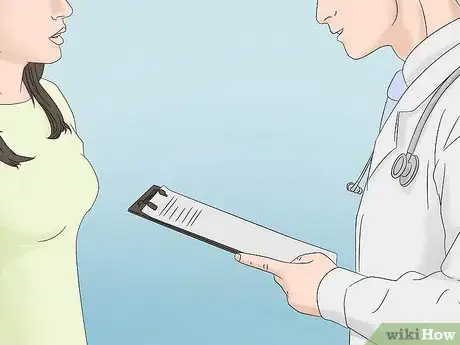
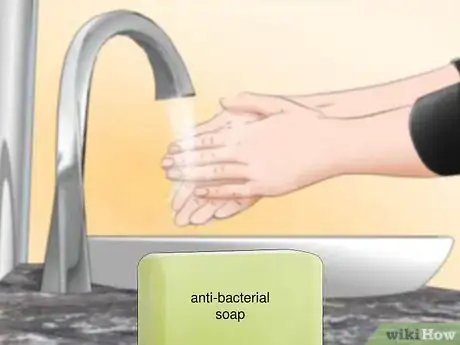
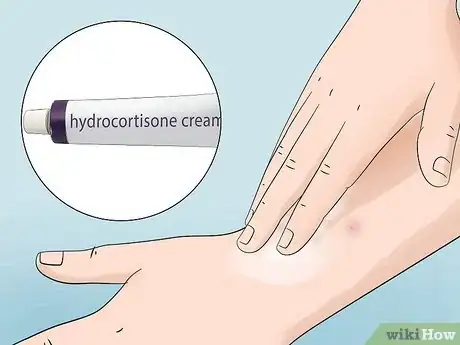
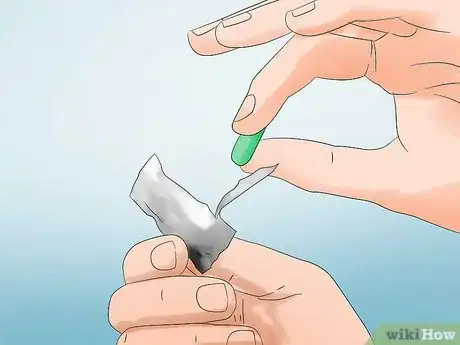






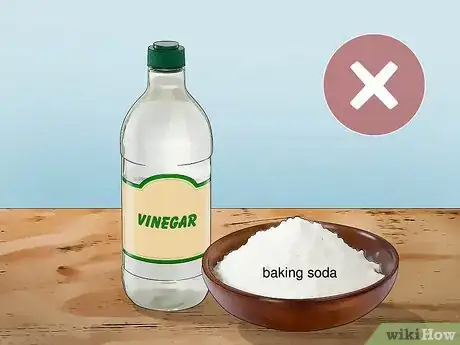
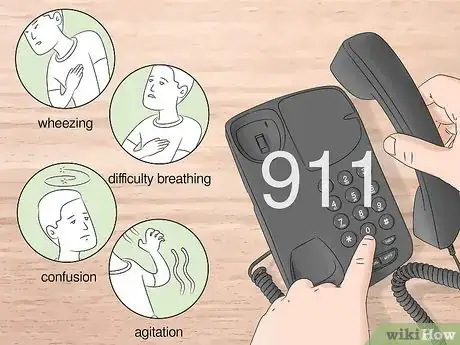
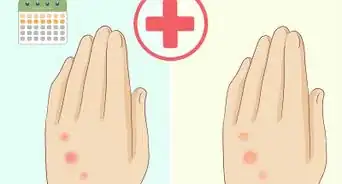
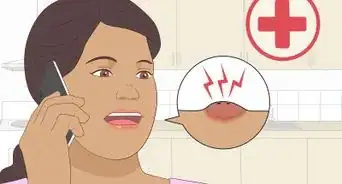
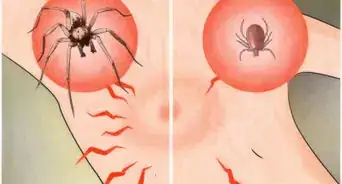
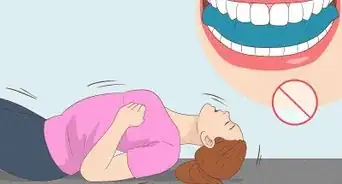


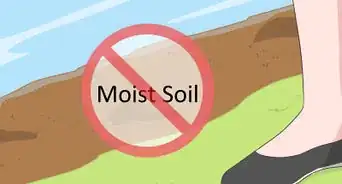

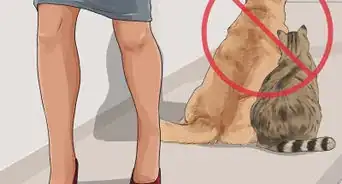
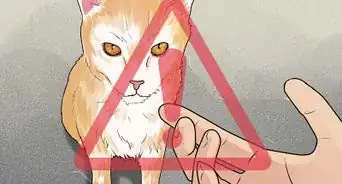
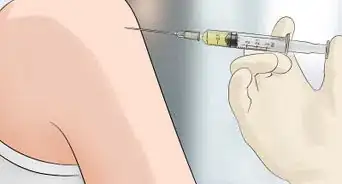

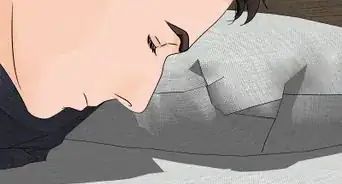
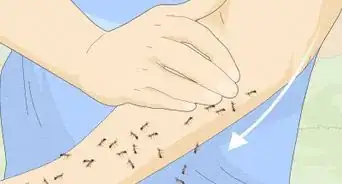






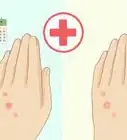
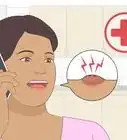
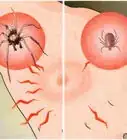




































Medical Disclaimer
The content of this article is not intended to be a substitute for professional medical advice, examination, diagnosis, or treatment. You should always contact your doctor or other qualified healthcare professional before starting, changing, or stopping any kind of health treatment.
Read More...